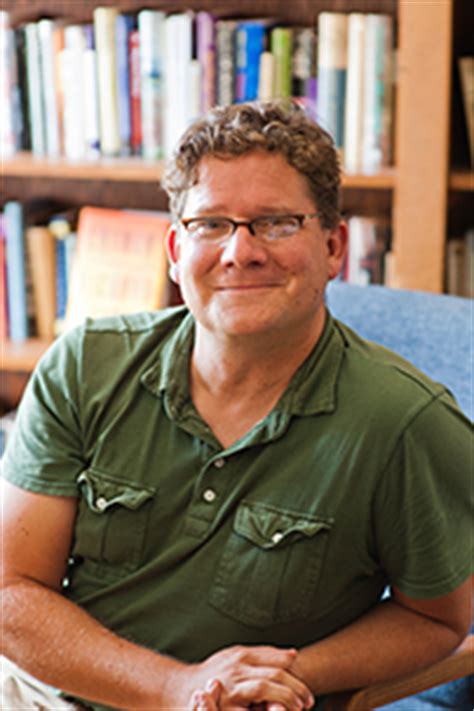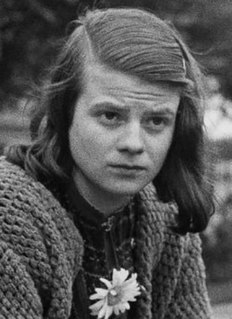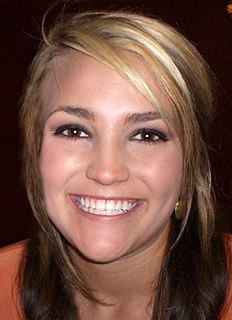A Quote by A. A. Gill
If the world were to end tomorrow and we could choose to save only one thing as the explanation and memorial to who we were, then we couldn't do better than the Natural History Museum, although it wouldn't contain a single human. The systematic Linnean order, the vast inquisitiveness and range of collated knowledge and beauty would tell all that is the best of us.
Related Quotes
Religion isn't best understood primarily as a collection of beliefs held by backward people with fear and trembling for most of human history (religion as brainwash). It is rather, among other things, a scriptorium of beleaguered witness, a record of collated information, both fragmentary and sometimes systematic, with which we may feel compelled to reckon as it somehow, across history, reckons with us, an inheritance, if you like, of difficult wisdom.
It is an odd fact of evolution that we are the only species on Earth capable of creating science and philosophy. There easily could have been another species with some scientific talent, say that of the average human ten-year-old, but not as much as adult humans have; or one that is better than us at physics but worse at biology; or one that is better than us at everything. If there were such creatures all around us, I think we would be more willing to concede that human scientific intelligence might be limited in certain respects.
The library connects us with the insight and knowledge, painfully extracted from Nature, of the greatest minds that ever were, with the best teachers, drawn from the entire planet and from all our history, to instruct us without tiring, and to inspire us to make our own contribution to the collective knowledge of the human species.
Women: I liked the colors of their clothing; the way they walked; the cruelty in some faces; now and then the almost pure beauty in another face, totally and enchantingly female. They had it over us: they planned much better and were better organized. While men were watching professional football or drinking beer or bowling, they, the women, were thinking about us, concentrating, studying, deciding - whether to accept us, discard us, exchange us, kill us or whether simply to leave us. In the end it hardly mattered; no matter what they did, we ended up lonely and insane.
Science, by itself, cannot supply us with an ethic. It can show us how to achieve a given end, and it may show us that some ends cannot be achieved. But among ends that can be achieved our choice must be decided by other than purely scientific considerations. If a man were to say, "I hate the human race, and I think it would be a good thing if it were exterminated," we could say, "Well, my dear sir, let us begin the process with you." But this is hardly argument, and no amount of science could prove such a man mistaken.
Other thing about [Field Museum of Natural History] which inspired was that in a group of pots you wouldn't see a single example of this kind of pot. You would perhaps see a case with 20 different examples. So you realize that these pots could be repeated again and again, and each time there would be minor variations in them.
Many people think of our times as being the last before the end of the world. The evidence of horror all around us makes this seem possible. But isn't that an idea of only minor importance? Doesn't every human being, no matter which era he lives in, always have to reckon with being accountable to God at any moment? Can I know whether I'll be alive tomorrow morning? A bomb could destroy all of us tonight. And then my guilt would not be one bit less than if I perished together with the arth and the stars.
The vast numbers of people who suffer some kind of mental illness under capitalism can either think, 'there is some failing with me, if only I could fit into this system better, if only I were working harder, if only I could enjoy these empty pleasures more, then things would be OK' or 'the problem is with the system that is making me ill.'
I've had the privilege of coaching the best basketball team in the history of the world, and that's the USA national team. I've had a chance to coach them for eight years. If you were to ask me if I could end my career only coaching one team for the rest of my coaching career, I don't think it could get better than that, especially with the players that I've had during those eight years. When you've coached at that level, you know, you've coached those players, it's pretty hard to say, I would rather coach anybody else.
If there were only some way of contriving that a state or an army should be made up of lovers and their beloved, they would be the very best governors of their own city, abstaining from all dishonour, and emulating one another in honour; and when fighting at each other's side, although a mere handful, they would overcome the world. For what lover would not choose rather to be seen by all mankind than by his beloved, either when abandoning his post or throwing away his arms? He would be ready to die a thousand deaths rather than endure this.
Human behaviour reveals uniformities which constitute natural laws. If these uniformities did not exist, then there would be neither social science nor political economy, and even the study of history would largely be useless. In effect, if the future actions of men having nothing in common with their past actions, our knowledge of them, although possibly satisfying our curiosity by way of an interesting story, would be entirely useless to us as a guide in life.
Russia could be, in fact, it would have to be a different Russia, but it could be a splendid ally. I will say this for the Russians: on their - in their favor, they have the intellectual capacity and the habits of mind to act in the world on a strategic scale, and were they do to so in service of a better cause than their current set of grievances, they would be a natural partner.






































